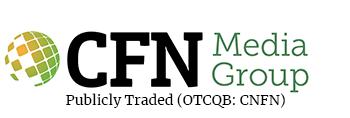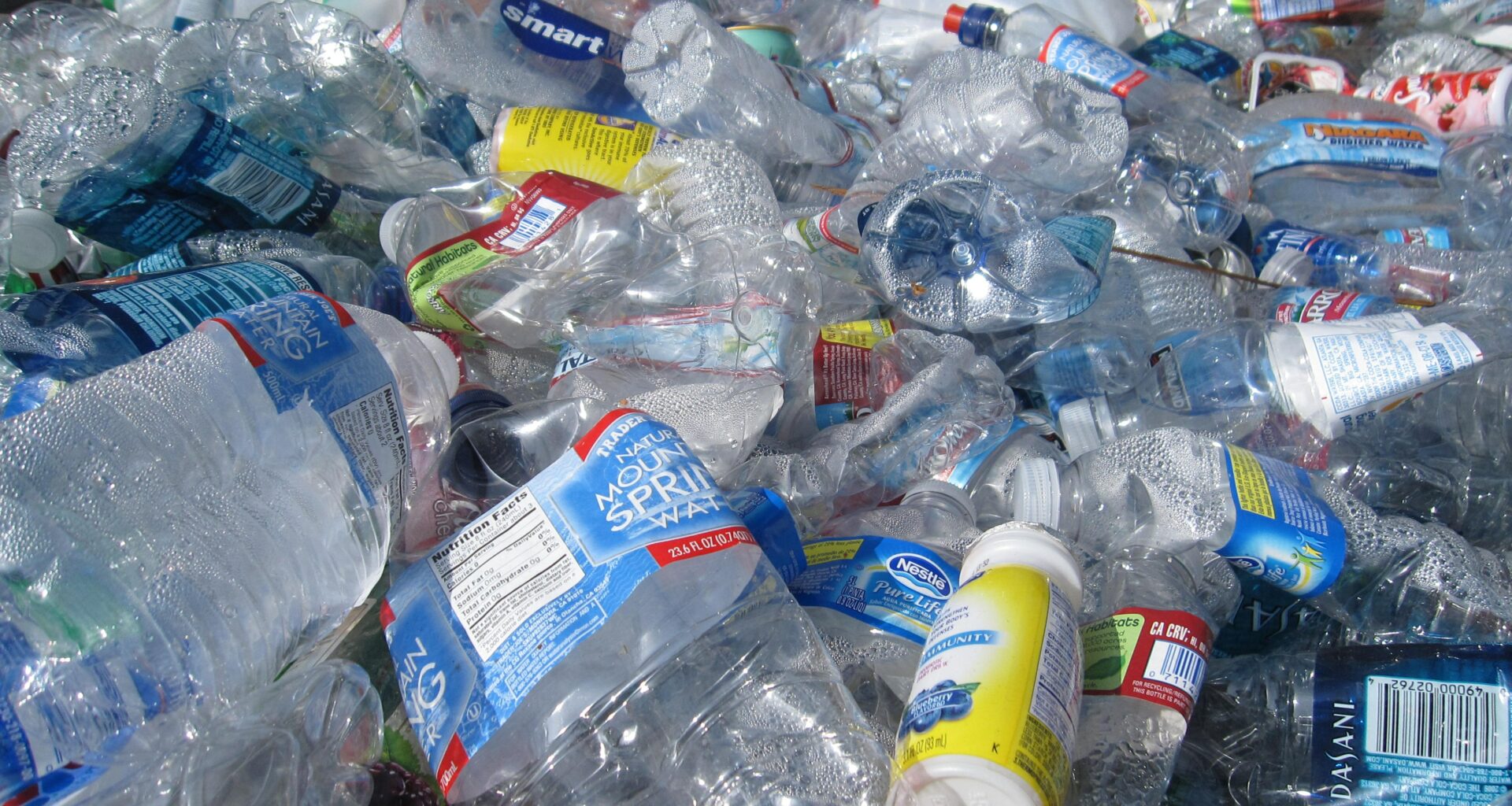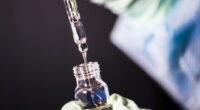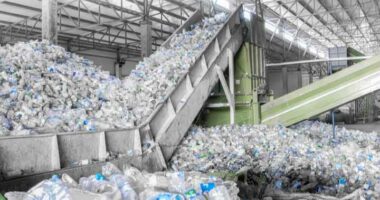If you’ve been paying attention to the plastic waste issue, you know that not much plastic actually gets recycled. Globally, it is estimated that about 10% of the waste is recycled, while in the United States, it may be as low as 5%. In the US only types 1 and 2 are currently recyclable due to technological limitations, contaminants, and impractical sorting requirements attributable to the basic fact of current plastic recycling: there are many, many types of plastic and none of them can be recycled together.
In spite of the inability to recycle, global plastic production has more than doubled in the last 20 years and is set to double again in the next ten years. According to the National Academies of Sciences, Engineering and Medicine, US citizens on average create 130 kilograms of plastic waste annually, and plastic makes up over 13% of all the solid waste that goes to American landfills. Plastic accounts for as much as 85% of global marine waste, and between 70-80% of all waste that enters land and marine environments combined.
The recycling system is so broken that the Environmental Protection Agency is requesting the Federal Trade Commission change its guidelines for what is considered recyclable. The EPA suggests that plastics should only have a recycle symbol on them if they are actually widely recyclable with a strong end market for the resultant products. It’s an effort to avoid consumer confusion and streamline the recycling system, but it doesn’t address the central problem – most plastic cannot be recycled using current techniques.
The Aduro Solution
Aduro Clean Technologies, Inc. (CSE: ACT) (OTCQB: ACTHF) (FSE: 9D50) has developed new recycling technology that may provide the necessary advancements to make plastic recycling efficient and viable. The company’s system is called Hydrochemolytic™ technology or HCT.
Aduro’s water-based HCT platform offers solutions for almost all of these issues. Here is a list of the benefits of HCT for plastic recycling.
- Chemically recycles plastic by using water as the medium and cellulose, ethanol, and glycerol as chemical agents
- Operates at lower temperatures than traditional technologies, resulting in less energy use
- Has lower OPEX and CAPEX than existing systems
- Works with all types of plastics
- Is highly scalable, small or large
- Does not need governmental subsidies to make it economically viable
- Is capable of converting waste plastic to gas, liquid, or solids
Aduro is currently introducing HCT to the market, having recently signed up its fifth multinational company to its Customer Engagement Program. The newest participant is a food packaging company, while others include global petrochemical giants. The customer engagement program utilizes a small, continuous feed HCT unit to test various feedstocks and product outputs. Aduro is able to refine its technology to meet specific customer needs while the client gains confidence in the HCT process.
Aduro has been testing all manner of feedstock, and recently announced performance results from one of its test runs for polypropylene, or plastic #5. A Greenpeace investigation looked at #5 plastic, or polypropylene (PP). PP is used for clear plastic beverage cups and food containers and makes up about 16% of all plastics produced yearly. It’s one of those types of plastics that people think is recyclable but really isn’t.
Aduro was able to achieve 95% efficiency in recycling polypropylene in its testing.
- Less than 5% of input ends up as non-recyclable material (carbon and fuel gas)
- Up to 95% of the carbon in polyolefin feedstock is converted into potential hydrocarbon feedstock for the production of new plastics and/or other chemicals.
- All feedstock is highly saturated, avoiding the need for costly post-hydrogenation.
To go from essentially unrecyclable to 95% recyclable would be an incredible leap forward. Keep in mind that Aduro has been testing other types of plastic feedstock as well, and the company believes that it can process almost any kind of plastic made today. Should HCT prove up to the task, the opportunity is enormous. But even if, for some reason, Aduro finds that it can only recycle plastic #5, or 16% of the total market, the company would still be positioned for major success.
A Look at a Peer
Consider PureCycle (Nasdaq: PCT), a company singularly focused on recycling polypropylene. PureCycle has one plant in Ohio that is capable of turning waste polypropylene into clean resin for resale. The plant has undergone difficulties and shutdowns while systems were refined, and last year was able to make about 200,000 pounds of pellets in the fourth quarter. This winter, PureCycle was able to increase production to about 1 million pounds in the first two months but has yet to sell its product.
PureCycle’s business model is to build large, expensive facilities on its own. While the Ohio plant is still being finalized, the company has committed over $50 million dollars to the early stages of a second facility being planned in Georgia. It’s a capital intensive approach, focused on volume production in major metropolitan areas. It will also be quite some time before the second plant is functional.
PureCycle, not yet reporting revenue and entirely focused on one type of plastic, has a current valuation of about $823 million. Aduro, confident in its ability to recycle a wide variety of plastics and not yet reporting revenue, has a current valuation of about $73 million.
The Upshot
Aduro’s business model is based on licensing and collaboration, flexibility and scalability. Rather than committing capital to building its own monolithic recycling plants, the company will be selling its technology to clients who will themselves build the facilities. HCT can be scaled to fit almost any level of demand, from rural applications to metropolitan areas.
And, as Aduro is proving through its customer engagement work, the technology can be tweaked and adapted to deal with multiple types of plastic inputs to create a wide variety of usable outputs per customer requirements. It seems to be a lower risk approach with more potential upside than the big factory/one product model.
Look for Aduro to build a commercial scale pilot plant later this year, announce more multinational partners in the Customer Engagement Program, report some level of revenue from these trial runs, and expand its footprint in the vast plastic products market. The whole industry has made commitments to work toward a circular economy for plastics, and Aduro may have just the type of solution required for recycling to play an effective role in it.
image sources
- tanvi-sharma–4bD2p5zbdA-unsplash: Photo by tanvi sharma on Unsplash










